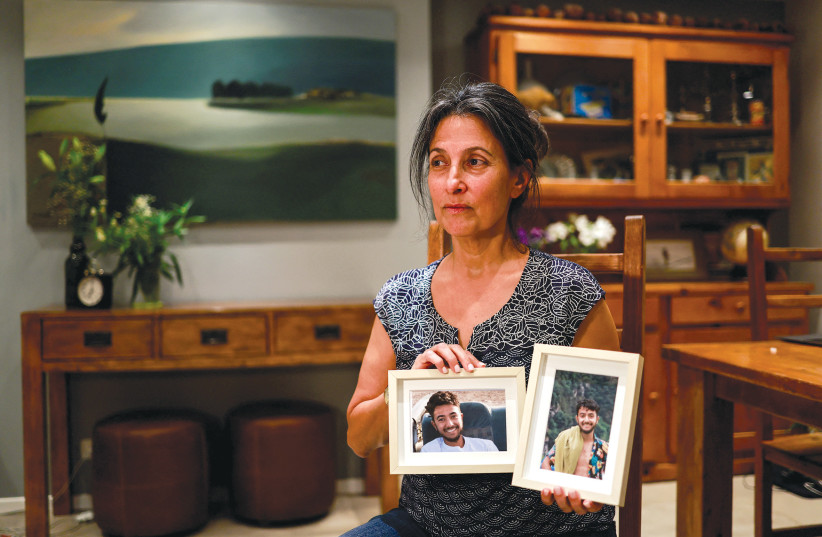A senior American official revealed on Wednesday that the White House was in contact with Hersh Goldberg-Polin's family members and had informed them immediately about the video, according to Walla.
Qatar also transferred the video to Israel before Hamas made it public. A private source told Walla, "The prime minister of Qatar received a request regarding Hersh from the American government, so he made Hersh's case a priority."
The video of Hersh was released as a tribute from Hamas to the Qatari government, which has been putting pressure on Hamas to provide signs of life from him in recent weeks, according to sources privy to the details.
An American official confirmed that the US received the video from Qatar as early as Monday. The White House contacted family members and informed them about the video immediately. The FBI and the White House's Special Hostage Team are still analyzing the video.
Qatar transferred the video to Israel before it was made public by Hamas as well, according to a source privy to the details.
Hersh is also an American citizen, and his mother, Rachel, has become one of the symbols of the Hostage struggle in the US. Due to her activities, she was included in Time magazine's list of 100 influential people, which was published last week.

Behind the scenes
A source privy to the details stated that the Biden administration has asked the Qatari government several times for assistance in getting signs of life from Hersh Goldberg-Polin and other American hostages.
The issue even came up in talks between Qatari Prime Minister Mohammed bin Abdulrahman Al Thani, Foreign Minister Antony Blinken, and senior White House officials. Al Thani also met the members of the Goldberg-Polin family at his office in Doha a few months ago.
"The Qatari Prime Minister received a request from the American government regarding the Hersh Goldberg-Polin case and, therefore, considered his case a priority. The PM pushed his team to put pressure on Hamas to provide signs of life from him," said the source.
Between the lines
Hersh's signs of life allow Hamas to appease Qatar and the Biden administration and, at the same time, increase the pressure on Prime Minister Benjamin Netanyahu to agree to his terms for the deal.
For the Qataris, obtaining the signs of life, and especially those of an American citizen, is an important political achievement that emphasizes their importance for both the US and Israel, especially the fact that they manage to "deliver goods" as intermediaries.
The release of the video also helped Qatar repel criticism against them from Israel and especially from American politicians that they are not doing enough to pressure Hamas to move forward with a hostage deal.
The big picture
Al Thani announced a few days ago that he ordered his staff to re-evaluate Qatar's role in mediating between Israel and Hamas regarding the hostages.
A source familiar with the matter stated that one of the reasons for the statement was the feeling in Doha that Prime Minister Netanyahu was performing a "political spin" on Qatar's back for internal political needs.
According to the source, the other reason was Doha's deep frustration with Hamas and Israel's conduct during the negotiations.
The Qatari Prime Minister felt that the decision-makers on both sides did not seriously want to reach a deal and were not willing to make the necessary compromises.
